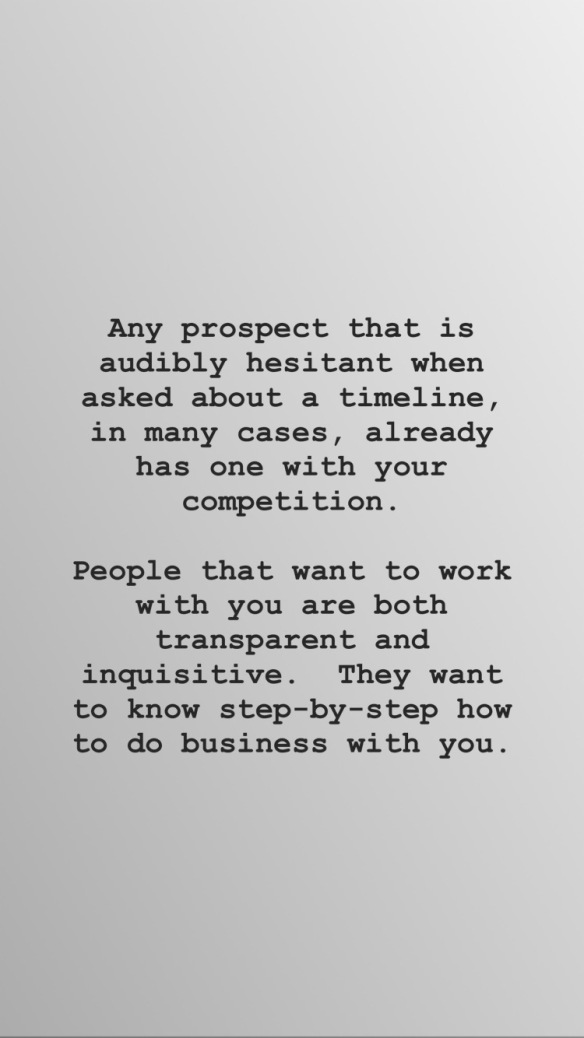In 2001, when I initially signed up for Sandler Training after years of reading every book on sales I could find, mail-order tape clubs, seminars, and rah-rah speeches…I was told by my trainer and eventually mentor Steve Herzog, “you are too analytical and have a huge weakness for money”.
“Can you explain”?
“You analyze and grind decisions to death for fear of making a bad decision, paying too much, and when people ask to think it over, you let them, because it’s what you do. You either want to buy something or you don’t. Can you not tell when you walk in somewhere whether you are going to buy? Also, you don’t like to talk about money because your parents probably told you not to and you grew up poor…so what, I had the same issues. In 2001, have you not figured out that to stay in business, most things are within about 5-10% of each other? Statistically, you are very rarely going to get ripped off, but you grind over that tiny savings that took you weeks to get. It’s a waste of everyone’s time”.
With frying-pan-to-face, I was instructed to buy things without weeks of research and going to 5 different places, because when prospects told me they wanted to do this, I understood it, and ‘let them’. I thought I was being helpful, but instead, I avoided hard questions trying to be nice, hoping they liked me, and thought in the end, they would go with me because I knew everything technically + the nice part. Always be nice.
My first foray was purchasing a new, large TV (my first flat screen) for the bedroom. Normally, I would have researched articles for weeks, beat Best Buy, Circuit City, Crutchfield, etc., out of all of their product knowledge, asked for brochures, and then when the stars aligned, bought. Huge decision, right? Not really.
I decided to go to the HH Gregg near my house. I ran into my twin, a kid who was an expert, analytical, and was very nice. I told him a few of the things I was looking for and within 10 minutes, I was paying for the TV. He was as shocked as I was at the speed of my decision.
When I told the young salesman my revelation, he explained how he could never do that…but by the end of our conversation, understood how many people he was losing by letting them walk out the door and giving all of his knowledge and research away, for free.
“The reality is…by the 3rd week, and last stop, people just buy out of exhaustion. I believe you can help them and you by changing your approach”.
In 2009 my TV crapped out, but it’s replacement was bought in the same exact manner. Every now and again, when I look at it, I’m reminded of the lessons Steve taught me:
- Be decisive, grinding is a waste of time.
- Trust people that display a wealth of knowledge, let them do the work for you.
- People don’t buy from the nicest person always, they buy from the one that listens and helps them make decisions faster.
- Stop spending time and energy trying to save pennies while missing out on doing valuable things that help your career, your family time, or your sanity.







